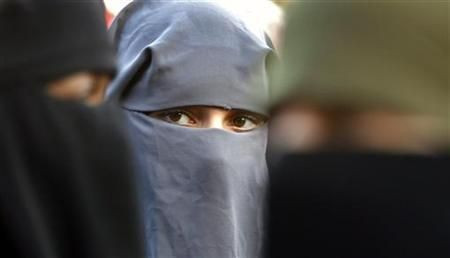France Burqa Ban Upheld By European Court Of Human Rights

France’s laws banning burqas and niqabs in public are not discriminatory, the European Court of Human Rights ruled on Tuesday.
The April 2011 law stirred controversy and faced strong objections from advocates of religious freedom who say Muslim women are not forced to wear burqas and niqabs and that their ban in France constitutes discrimination. Those in favor of the measure say the veils and body coverings are demeaning to women, and the law is in concert with France’s history of being a secular republic.
The case heard by the court was brought by a 24-year-old French woman of Pakistani origin who said the laws were discriminatory and violated her freedoms of expression, religion and assembly, according to France 24. In the case, she was only referred to by her initials -- SAS. She said she wasn’t forced to wear the burqa or niqab and that she took the items off in public when it was required to do so for security reasons.
Amnesty International sided with SAS in her case, saying the French law “only served to stigmatize women, and Muslim women in particular.”
“The argument that the law protects women has no foundation,” said Amnesty President Geneviève Garrigos, according to France 24. “Many [Muslim] women wear veils of their own free will. The state does not exist to tell people how they should dress. Rather, it should allow them to make their own choices.”
After first hearing the case in November, Tuesday’s ruling sides with the French Constitutional Council, which said the bill that led to the law “conforms to the [French] constitution,” according to CNN. The council noted that Muslim women are free to wear the burqas and niqabs in houses of worship.
© Copyright IBTimes 2025. All rights reserved.





















